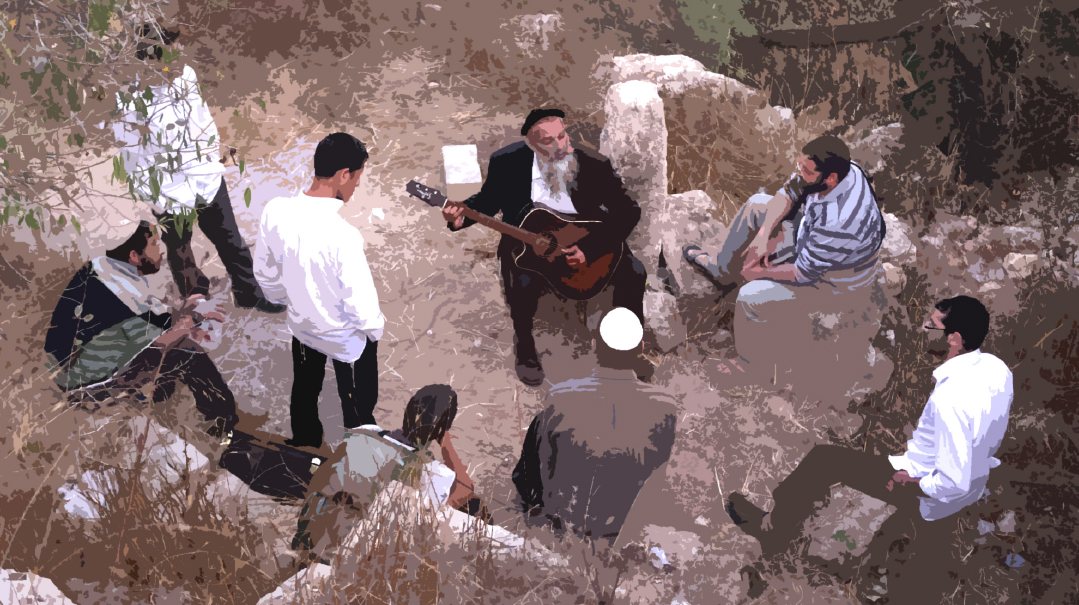So You Want to Be a.. Kiruv Professional
| June 29, 2021What does the job actually entail? Read on to find out whether this is the job for you

What will I be doing all day?
While responsibilities differ based on the specific job, a kiruv professional can generally expect to spend their day teaching classes, meeting one-on-one with individuals, developing and administering programs, and, often, fundraising as well.
What kind of training do I need?
Success in kiruv is less about training and more dependent on having the right personality traits and a driving passion for your job.
What can I expect to make?
Salaries may start at around $50,000 but vary greatly by location and job description. Working in fundraising and management will draw a higher salary. The kiruv profession does provide room for growth, as job responsibilities expand.
While actual salary numbers are hard to come by, because there are so many variables involved, people working in the field agree that it is definitely possible to make a living wage as a kiruv professional.
What kinds of settings can I work in?
Kiruv in 2021 is a multifaceted endeavor that offers a variety of opportunities in multiple populations and locales. Common outreach opportunities include working with school-age children and teens, young professionals, families, and campus kiruv. Then of course, there’s Chabad, which has created its own unique brand within the kiruv field. Conversations with Chabad shluchim provide a small glimpse into the incredibly broad scope of their work. Through their network of school, social centers, and Chabad Houses, they reach out to unaffiliated Jews in every corner of the globe.
Do I have the personality for it?
A successful kiruv professional is someone who is motivated, persevering, and self-driven. They must have excellent interpersonal skills, enjoy meeting new people, and be upbeat and positive. They should be creative and be good at taking initiative. They should also have good organization and time management skills.
TALES FROM THE TRENCHES
MEIRA SPIVAK
Portland, Oregon
Director, Oregon NCSY and Northern District Manager for West Coast NCSY
Graduated from: Queens College, BA Communications/Business and Touro College, MA Jewish Education
Years in Field: 20+
MY TYPICAL DAY AT WORK
I’m the type of person who likes to get my feet wet in a number of different projects. That’s why I love that no two days are the same on my job. One day we can be planning (and cooking) for a shabbaton, the next day discussing an upcoming fundraiser, the next recruiting for a camp. It never gets dull. My responsibilities range from day-to-day operations, management, fundraising, recruitment, community engagement, and directing a camp.
I meet weekly with my staff to help them with projects and to come up with solutions to current challenges. I might be checking in on fundraising goals or working on the budget or reviewing an event checklist to make sure every detail has been covered. Then there’s recruitment, which involves phone calls to parents and teens, social media, networking at events, going to coffee with community partners, having crucial conversations with the right people, as well as running community feel-good events like a cholent cook-off, pre-Pesach car wash, or even fundraisers that bring people closer to our organization.
HOW I CHOSE THE PROFESSION
Honestly, it was pure Hashgachah. When I got back from seminary, someone asked me to get involved with NCSY as a volunteer. I loved it and haven’t looked back since. I personally didn’t receive formal training in kiruv; I just became passionate about it by experiencing it firsthand.
HOW I CHOSE MY SPECIALTY
My job has really evolved over the years. I started as the Portland NCSY Director, but as the chapter grew, we needed to hire a second staff member. As we grew further, we needed to raise more serious funds, so I began to help with fundraising. I focus on implementing new programs as the needs arise. NCSY has recognized my willingness to take on additional responsibilities and has helped me to grow in my job accordingly.
DOES KIRUV NEED TO BE A JOINT HUSBAND-WIFE VENTURE?
No, though the other spouse needs to be supportive. Shabbos meals are a huge part of kiruv, and the other spouse needs to be friendly, warm, and engaging so the guests want to return.
Oops! We could not locate your form.













